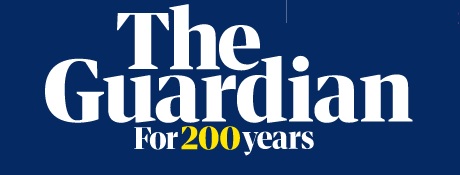Rewilding the Galápagos can be a model for a new way to coexist with nature
There are few places in the world as majestic and full of wonder as Ecuador’s Galápagos Islands. From the rosy-hued pink iguanas on the northern rim of Wolf Volcano to the iconic Pinzón giant tortoise on Pinzón Island to the black-tipped reef sharks feeding off Floreana Island, we have both found boundless inspiration in exploring the islands that led Charles Darwin to develop his groundbreaking theory of evolution nearly two centuries ago.
We have both also witnessed a more recent rapidly evolving process in the Galápagos based on a shared vision of restoring the profusion of life that the archipelago is renowned for. This process is rewilding, a positive reframing for nature conservation. There is an idea that rewilding involves restoring nature at the expense of people, but we believe it is all about effectively integrating ourselves within the ecosystems that sustain us – to work with, rather than against, nature to create thriving and resilient ecosystems for the benefit of all.
In short, modern rewilding is the revolutionary act of bringing together people and the planet for people and the planet. It does not require any futuristic technology, relying instead on our scientific understanding of wildlife and ecosystems, combined with the traditional knowledge and wisdom of local communities and Indigenous peoples, who are consistently the most effective custodians of Earth’s biodiversity. In the truest sense of the word, it redresses our balance with the wild.
In the Galápagos, where non-native rats and other invasive species have decimated populations of birds, reptiles and other wildlife, it is inspiring to see some amazing examples of local communities deciding to restore and coexist with nature, rather than exploit it.
On Floreana, for example, residents are collaborating to remove invasive species by 2024 and return 13 native species to the island where they went locally extinct, by 2027. One of those species is the Floreana giant tortoise, whose return could reshape the entire island ecosystem. As the tortoises selectively browse certain plants, they disperse the seeds of native species and create a mosaic of habitats, enabling the island to return to a savannah-like ecosystem.
This will help the return of other species that will collectively restore the ecosystem to health, offering a cascade of benefits to the local Floreana community: climate resiliency, protection of their food and water supplies, preservation of their culture, and nature-based tourism.
And as Floreana is transformed, the ocean surrounding it will also benefit from, among other things, nutrient cycling from seabirds and reduced sedimentation due to the return of native vegetation.
The commitment to rewilding Floreana Island represents a shared vision of the Galápagos National Park Directorate and the local community, who have played leading roles in co-designing these projects from the start.
Re:wild and the directorate have now teamed up with local environmental organisations such as Fundación Jocotoco to replicate this powerful model to rewild the rest of the islands. Re:wild is also taking this approach beyond the Galápagos with local partners elsewhere, including across all of Latin America’s Pacific archipelagos, from Mexico to Chile.
We are seeing other promising examples of rewilding elsewhere. In Australia, reintroducing Tasmanian devils to the mainland will help engineer the entire ecosystem back to health and reduce the intensity of wildfires by helping native small mammals recover and forests to regenerate. In the Iberá wetlands of north-eastern Argentina, local communities have taken great pride in the reintroduction of jaguars, which are reinvigorating ecotourism in the region. In Indonesia, communities on Lombok Island are leading the restoration of coral reefs just a few years after a significant 2018 earthquake. And in the Caribbean, barren islands are being returned to lush green wildlife oases that can mitigate the impacts of extreme weather.
These are in microcosm what rewilding could accomplish on a global scale when done in the right places: thriving wildlife communities living in harmony with thriving human communities. We both agree that the answer to the climate and biodiversity crises gripping the world is both the most basic and ancient of ideas and the most radical to create a liveable planet by working with the wild, rather than against it.
Danny Rueda Córdova is director of the Galápagos National Park Directorate. Leonardo DiCaprio is an environmentalist, Academy Award-winning actor and founding board member of Re:wild.
Danny Rueda Córdova and Leonardo DiCaprio




